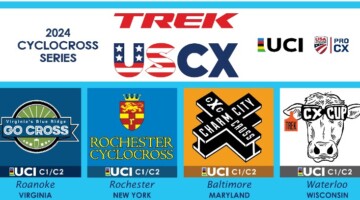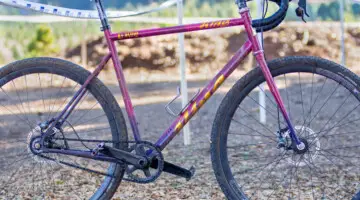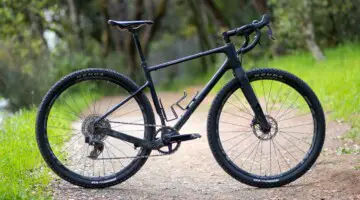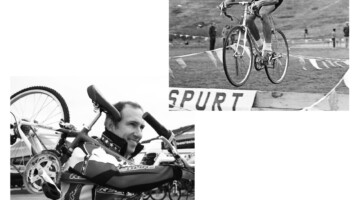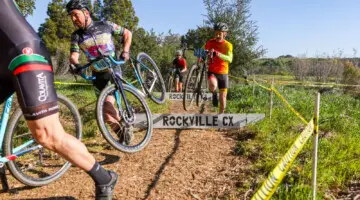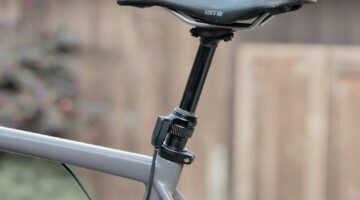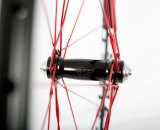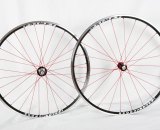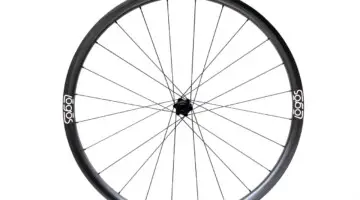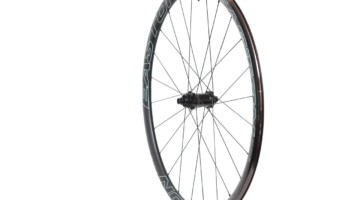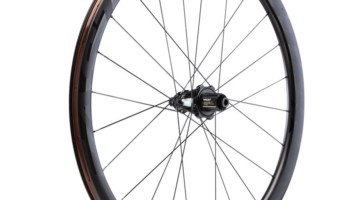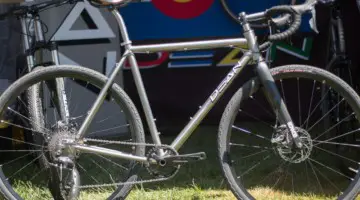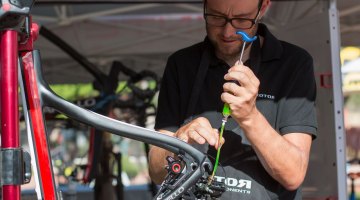by Lee Waldman
You may have seen the beginning of Lee’s interview with Rob Curtis in his column this past Saturday, but that was only the beginning. Today, Lee continues his interview with Rob Curtis, the wheel-builder behind PSIMET Wheels.
Lee Waldman: What is it about wheel building that attracts you? What’s the joy?
Rob Curtis: There are just so many things. All of it. The challenge of it. It’s very satisfying knowing that you can apply some talent and skill and make something with your own hands that people enjoy.
LW: What are your biggest challenges as a wheel builder? What frustrates you the most?
RC: The distributors in this industry are extremely unfriendly to anyone who isn’t a rank-and-file brick-and-mortar shop. It is the only model that people want to trust, so they do everything they can to oppress any form of business that isn’t 100% completely traditional. Unfortunately, history shows that industries that do this will fail in the long run.
In general, I find these organizations aren’t savvy enough to understand the business opportunities that are staring them in the face. With the ever-shrinking world, I can now frequently source product from Europe retail at lower than US wholesale. The reason for this is lazy distributors who are taking too much of a cut and acting like it is their way or the highway. As we know from cycling — fat and lazy doesn’t win the race. I should know.
Take the pre-built market — there is some great product in there but it doesn’t work for everyone. The large original equipment manufacturers (OEM) need to partner with key builders such as PSIMET to help use some of their components to build custom configurations for key markets. The trend is unfortunately going in the opposite direction. I’ve been unceremoniously dumped by a large OEM who had a “sales manager” tell me that they were thinking that they weren’t going to support small builders anymore, and another large one just stopped returning my emails and calls. Some say they see me as a competitor — demonstrating a total lack of understanding of what it is that I do. I have gotten frustrated and bored with it over the years. I sell a lot of merchandise and I have a vested interest in selling it the right way. I have adopted a philosophy that I should never have to chase down someone I want to give money to.
I have never been one to allow anyone else to tell me what I can and can not do. I have found some very valuable business partners who have taken chances and opened their eyes to what the business really is. As such, I try to share every tiny bit of success that I can directly with them.
As for wheel building — my biggest challenge is revealing the need that customers have. That or explaining what custom means when it comes to wheels. We have been conditioned as a consumer society to do the big box style of shopping: “here are my options and here are my price points. Here is a list of features and benefits to compare. Now select from that.” Doing business in a custom setting is completely about filling a need, not selecting from a list. It isn’t unheard of for me to have to source a new product for build simply because my current “list” just doesn’t address the need as it stands.
LW: Why should someone buy a custom wheel when there are so many choices of pre-builts?
RC: Good question. The answer to this is a concept that I am actually putting into a visual that I am working up. There are a lot of quality pre-built wheels out there, for sure. I am not an anti-pre-built kind of guy. I think pioneers like Mavic and Zipp have really shown that it is possible to have a quality pre-built that will work for a lot of riders. At the same time, no one can ever convince me that the same wheel will work just as well for a 110 pound female racer as it will for a 230 pound male club rider.
Those that do address this discrepancy do it in a way that marginalizes those riders at the heavier end of the weight range. I’m sorry, but out of the thousands of club rides, centuries, races, et cetera that I have done over the past 24 years, I tend to find that the vast majority of pre-builts are not designed to service the riders that actually need them.
It’s simple marketing and economies of scale. Make the best compromise of weight, looks and price. When riders pick wheels they simply ask three things: “What is the weight? How much are they? Do they look cool?” That’s what drives the pre-built market.
By working with an individual client on the custom side I get to listen to what it is that they need or are looking for. I get to make selections for raw components that allow me to tweak each part of the assembly to bring out a complete set that fills their need. I don’t have to make a sacrifice here or there to help the economics of the wheel, the overall weight, the looks or other marketability.
An example would be if I had a really light rider to build for, I can make concessions that I would never be able to do in a pre-built for fear of the wheel failing under a heavier rider.
LW: Time to toot your own horn a bit. What makes a PSIMET wheel set special?
RC: Value. I liken it to those stories I hear of those roving chuck wagons on the West Coast where people in the know can show up and pay only a few bucks and get an incredible meal. I am able to use very high-quality components and sell at prices that others would not consider to be viable. I am still lucky enough to be the only one who does the tension and true on every wheel coming out of the door, meaning I have the direct control over the final product. I get to maintain my vision of value and quality. Not only that, but the spec has been designed around the rider. No compromises. At least, that is what I think makes the wheelset special. I get to do this at a very competitive price as well.
I want people to enjoy the ride, not waste time worrying about whether or not they thought buying the wheels was a good choice. The wheels should enhance the experience, not be the experience.
LW: You obviously have a love of cyclocross, you build lots of cyclocross wheels. I have a set that I love. What do you think it is about ’cross that attracts riders? What attracted you to it?
RC: Community. Ease of entry. In Chicago, we luck out. We have an amazing series that has been developed over the years by some really great people. I remember going to races simply because they were close, it was cold and I had nothing better to do. It was after going that I realized, “Hey … I can do this.”
The fact that it doesn’t have the traditional roadie narcissism attached to it makes people feel more comfortable about trying it. That and you can practice anywhere, use just about any kind of bike you want, probably won’t get hurt as bad when you crash, be off of open roads, et cetera. It all adds to the popularity.
Think about it: if it weren’t for crits, then the US road racing scene would be much smaller than it is now. Even then, though, crits have one major drawback: you have to convince the ever-car-loving American community that they should allow you to close a few streets. With cyclocross, you can take over an under-utilized park, bring the whole family and enjoy a day of bike racing.
I had decided I would try cyclocross at the end of a road season about three years ago. I remember standing in that first grid next to a good friend of mine, Matt Haiduk, as we spewed forth nervous chatter about how stupid we thought this whole “off-road” thing was. Then the race started. I wasn’t even a full lap in before I found myself feeling like a kid who just found out that girls smell nice.
LW: What do you think about the move to discs in ’cross? Pros and cons? I know I can’t afford four new sets of wheels myself and I think a lot of people are in the same boat. Are you getting requests for disc wheels yet?
RC: I think it’s a great move. Honestly. Now, the purist roadie in me would disagree on principle but thankfully that side of me doesn’t make the decisions. I don’t have a long history of being a mountain biker, so discs are still a semi-foreign concept to me.
Pros: I believe it takes great stopping power and control in order to be able to go fast. It will open up rim design to allow OEM’s to simply elevate the capabilities of these components to the next level.
Cons: Lack of a clear and concise standard. Less flexibility in selection of lacings/materials, just not a lot of viable product out there. This will change quickly.
I firmly believe we won’t be having this discussion in four years. It will just be the accepted norm. I have had an immense amount of interest from customers about where the technology might go, but not a lot of solid “build me a disc set” invoices yet. I will put it this way though: I tend to test what is next for me. I don’t like talking about something if I haven’t been in the trenches with it. This “demo then build” routine I have has led to my offering a few different sets of “pre-built” cyclocross offerings this season. They are what I tested last season. Right now, the local Specialized rep and shop are sick of hearing me ask when my disc frame is coming in, and at least one major hub OEM is sick of me asking for one-off variants. The market is still fresh and new this year but I feel that Interbike will be 100% ’cross disc and next season I will be offering a couple of options in a “ready to ship” flavor.
LW: I’m one of those rare people who still likes to build my own wheels when I have the time. What advice can you give me about building a really good, solid set of wheels?
RC: Count and measure. Then count and measure again. Good wheel-building is the combination of the following: using quality components, realizing that nothing ever made by man is perfect so you need to identify the best mix of defects/benefits to perform the best. It’s hard to explain, but I find the best wheels that I have built have been when I strike that balance between all of the trade-offs. Wheel-building is a skill that has to be practiced in order to maintain. If you only build wheels occasionally then I highly recommend taking the time to check and re-check over and over. I can’t tell you how many times I have tried to teach someone only to see them make the simple mistakes happen because they are just out of practice. So start with quality components, use quality tools, have good organization and take your time.
There you go. Rob Curtis of PSIMET. A guy you really need to know. OK, Enough reading. Go ride!

